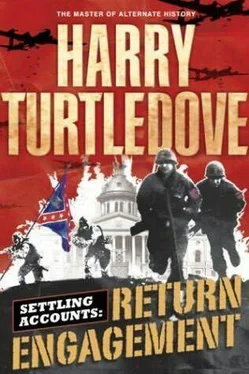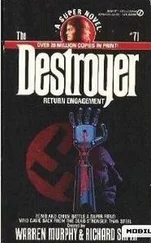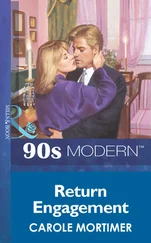Harry Turtledove - Return engagement
Здесь есть возможность читать онлайн «Harry Turtledove - Return engagement» весь текст электронной книги совершенно бесплатно (целиком полную версию без сокращений). В некоторых случаях можно слушать аудио, скачать через торрент в формате fb2 и присутствует краткое содержание. Жанр: История, на английском языке. Описание произведения, (предисловие) а так же отзывы посетителей доступны на портале библиотеки ЛибКат.
- Название:Return engagement
- Автор:
- Жанр:
- Год:неизвестен
- ISBN:нет данных
- Рейтинг книги:5 / 5. Голосов: 1
-
Избранное:Добавить в избранное
- Отзывы:
-
Ваша оценка:
- 100
- 1
- 2
- 3
- 4
- 5
Return engagement: краткое содержание, описание и аннотация
Предлагаем к чтению аннотацию, описание, краткое содержание или предисловие (зависит от того, что написал сам автор книги «Return engagement»). Если вы не нашли необходимую информацию о книге — напишите в комментариях, мы постараемся отыскать её.
Return engagement — читать онлайн бесплатно полную книгу (весь текст) целиком
Ниже представлен текст книги, разбитый по страницам. Система сохранения места последней прочитанной страницы, позволяет с удобством читать онлайн бесплатно книгу «Return engagement», без необходимости каждый раз заново искать на чём Вы остановились. Поставьте закладку, и сможете в любой момент перейти на страницу, на которой закончили чтение.
Интервал:
Закладка:
Morrell had to look at the map again to find out where Sandingstone Run was. He discovered it was, of all things, a tributary to Sunfish Creek. "Well?" he said ominously.
"Sir, the bridge is blown," the barrel commander said.
That disgusted Morrell without surprising him. "Find a ford," he growled. "Don't waste time doing it, either. By the look of that run on the map, if you piss in it you'll send it over its banks."
He got a burst of startled laughter. "It's a little bigger than that, sir, but not a hell of a lot," the barrel commander said. "All right. We'll take care of it."
Fifteen minutes later, the barrel commander reported he was over the stream. Another delay, Morrell thought unhappily. And how many more bridges in eastern Ohio had gone splashing into the streams they crossed? More than a few, unless he missed his guess.
Maybe I should have gone to Woodsfield myself, he thought. A sheriff would pay more attention to a bird colonel than he would to Joe Blow in a barrel. Then Morrell laughed at himself. Anybody in a barrel could command attention. All he had to do was aim his cannon at the sheriff's station and threaten to start blowing things up unless he got what he wanted. Civilians couldn't do much about that except knuckle under.
And then Morrell remembered Featherston Fizzes. Somebody in what had been the state of Houston had figured out that a bottle of gasoline with a lit wick would set a barrel on fire easy as you please. Barrels were inflammable things any which way, what with paint and grease all over them. Spill burning gasoline down through the engine-decking louvers onto the motor and you really had yourself a problem.
"Sir?" The barrel commander's voice sounded in his earphones.
"I'm here," Morrell said.
"Yes, sir. Well, truth is, this town got bombed to hell and gone back I don't know when-not too long ago. Sheriff's dead. Nobody's sent out a replacement yet."
"Oh, for Christ's sake," Morrell said. But it wasn't that surprising. A replacement for a county sheriff would have been chosen in Columbus. Columbus had had other things to worry about than sending somebody with a badge out to a place where nothing ever happened anyway. These days, the Stars and Bars, damn them, flew over the capital of Ohio. Nobody there would care about Monroe County now.
"What do you want me to do, sir?" the barrel commander asked.
"Hold your position. We'll move up and join you. Describe where the ford is relative to the bridge," Morrell said. He got the column moving again. They rumbled through forest country. A sniper could have had a field day picking off barrel commanders. But there were no snipers. The things I'm grateful for these days, Morrell thought sourly. How much delay would the blown bridges between here and the start of the counteroffensive impose? And what would that do to the attack when it did get going? Nothing good. He shook his head. No, nothing good at all.
XI
Mary Pomeroy didn't like going to the post office in Rosenfeld any more. Wilf Rokeby knew too much. He never said anything, not after the first time, but he knew. Sooner or later, she was going to have to do something about that. She hadn't figured out what yet. Whatever it was, it had to be something that didn't draw suspicion down on her.
She wished she didn't see the need. But he had a hold on her. He could use it to blackmail her, or he could go to the occupying authorities. He'd got along with them ever since 1914. He'd had to get along with them if he wanted to stay postmaster-and, as far as Mary could tell, being postmaster had been his whole life, even if he was finally retiring at the end of the year. He'd never married. He lived by himself. Maybe because he was so fussy and precise, some people wondered if he was a pansy, but nobody had anything even resembling proof of that. It was just something to gossip about when folks were in a more scandalous mood than usual.
A bomb? Bombs were always Mary's first thought. She was, after all, her father's daughter. Arthur McGregor had hit back hard at the Yanks for years till his luck ran out. But Wilf would surely be alert to anything that came in the post. As far as Mary could see, the only thing worse than not trying to get rid of him was trying and failing. That would surely send him off to the authorities.
Poison? Similar objection. She could bake an apple pie, lace it with rat poison, and smile sweetly while she gave it to him. No matter how sweetly she smiled, though, would he eat any of the pie? Would he eat more than one bite if it tasted even the least bit funny? Not likely.
Pretending the brakes on the auto failed and running him down in the street? She could do it, but she didn't see how she could keep from going to jail once she did. That wasn't what she had in mind.
Frustration gnawed at her. What she really wanted was to plant bombs on the railroad tracks outside of town. Canadian railroads were suddenly a lot more important to the USA than they had been before the war. The Yanks couldn't ship through their own country, because the Confederates had split it in two (and the Mormons were also sitting astride one of their transcontinental routes). If they wanted to move things from west to east or from east to west, they had to go through Canada. Damaging the railroads could really hurt them now.
But damaging the railroads would also make Wilf Rokeby sit up and take notice. And what would he do if he did take notice? Mary couldn't tell. She couldn't very well ask him, either. He wouldn't give her a straight answer, and the question would only put his wind up.
That left… waiting and seeing what happened next. Mary didn't like that. It meant the ball was in Wilf's hands. What happened next might be U.S. soldiers-or, worse, Quebecois soldiers-banging on her door in the middle of the night. If they searched the apartment building, they would find her bomb-making tools. Everything would be all over then. She wondered if she could die as bravely as her brother, Alexander, had during the Great War. She had her doubts. Alexander hadn't been old enough to believe death could really happen to him. Mary knew better.
The irony was, Canada had started seething like a pot coming to the boil since the war broke out. Fresh signs had gone up in the post office, warning not just of Japanese spies (a ridiculous notion in Rosenfeld) but also of British agents (perhaps not so ridiculous after all). The Rosenfeld Register trumpeted out the same warnings.
Pointing to one of those stories in the weekly, Mary said, "Seems some of us remember the mother country after all."
"Does look that way." Mort Pomeroy eyed her from across the dining-room table. "You don't want to say that kind of thing outside the apartment, though, or to anybody but me."
Such were the lessons of occupation. Mary had learned them, too. She nodded. "I know, Mort. You didn't marry a fool." You married a bomber's daughter. You knew that. You still don't know you married a bomber, too.
He smiled. "I wouldn't have married a fool. That's not what I was looking for."
And Mary found what she was looking for a few days later, in Karamanlides' general store. She didn't realize what she'd found, not at first. It was a folded piece of cheap pulp paper stuck between cans of tomatoes. She pulled it out, wondering why anyone would have wasted time sticking an advertising circular there.
When she unfolded it, she found it wasn't an advertising circular-not one of the usual sort, anyway. A cartoon at the top showed a Satanic-looking Uncle Sam with a scantily clad maiden labeled canada slung over his shoulder. He was heading up a stairway, plainly intending to visit a fate worse than death upon her when he got to the room at the top. A nasty little dog with a Frenchman's face-labeled quebec-bounded along behind him. God only knew what the dog would do up there. Whatever it was, it wouldn't be pretty.
Читать дальшеИнтервал:
Закладка:
Похожие книги на «Return engagement»
Представляем Вашему вниманию похожие книги на «Return engagement» списком для выбора. Мы отобрали схожую по названию и смыслу литературу в надежде предоставить читателям больше вариантов отыскать новые, интересные, ещё непрочитанные произведения.
Обсуждение, отзывы о книге «Return engagement» и просто собственные мнения читателей. Оставьте ваши комментарии, напишите, что Вы думаете о произведении, его смысле или главных героях. Укажите что конкретно понравилось, а что нет, и почему Вы так считаете.












